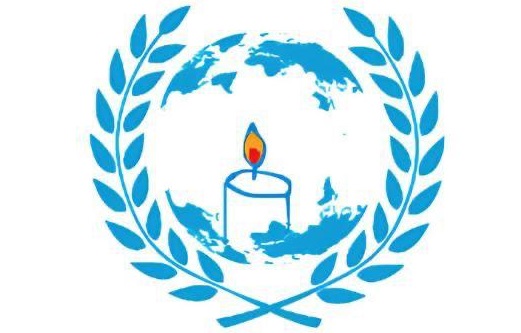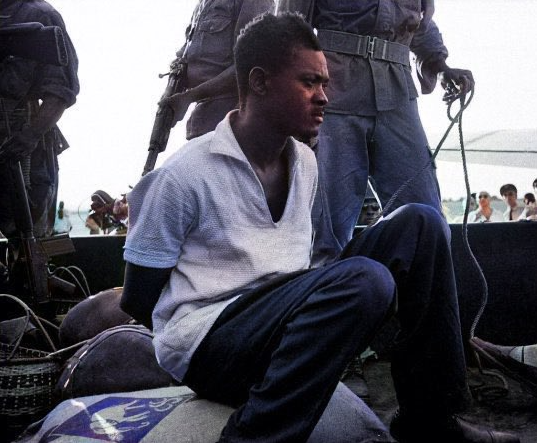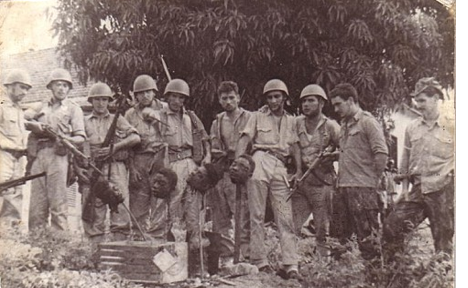Death by Mass Starvation
Across The World, Colonial Powers Used Starvation as a Weapon to Subjugate Those Resisting Colonization
- About
- museum
- get involve
Hunger by Design
Although the starvation of a civilian population is a war crime, a crime against humanity, and an act of genocide according to modern international criminal law, starvation has not always been illegal according to international law. Historically, the development of laws against starvation has been hampered by the colonial powers who used blockades against their enemies. However, it was banned in 1977 by Protocol I and Protocol II to the Geneva Conventions and criminalized by the Rome Statute. Prosecutions for starvation have been rare.
There are several reasons why a perpetrator might choose to employ starvation: (i) extermination or genocide; (ii) control through weakening a population; (iii) gaining territorial control; (iv) flushing out a population; (v) punishment; (vi) material extraction or theft; (vii) extreme exploitation; (viii) war provisioning; and (ix) comprehensive societal transformation.
Remembering Victims of Mass Starvation
Starvation, a severe deficiency in caloric energy intake below the level needed to maintain an organism’s life, is one of the oldest weapons of colonization. The most extreme form of malnutrition, starvation, includes destroying food, farms, and water supplies and cutting off besieged indigenous populations. Most deaths occur in young children and the elderly, as well as pregnant and lactating mothers. Survivors can face lifelong health impairments.
Across the world, colonial powers used starvation as a weapon to subjugate indigenous communities resisting colonization. Laying siege to countless villages, towns, and cities, the strategy was surrender or starve. World Colonization Memorial strongly believes that intentionally using starvation of civilians as a method of colonization by depriving them of resources indispensable to their survival was (is) wrong and unjust, and the victims will be remembered and honored.
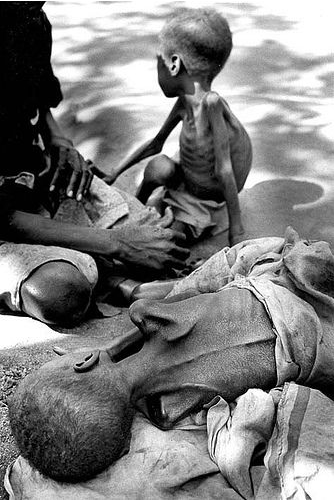
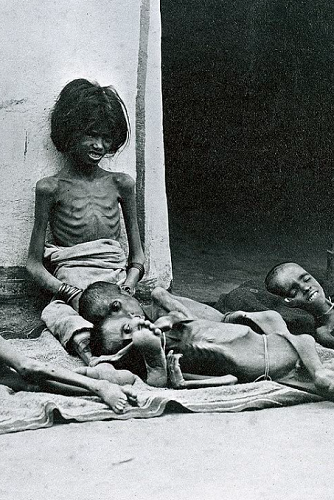
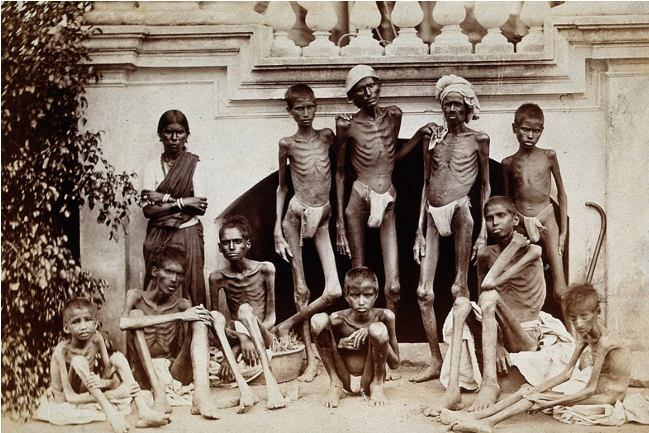
WORLD COLONIZATION MEMORIAL MUSEUM
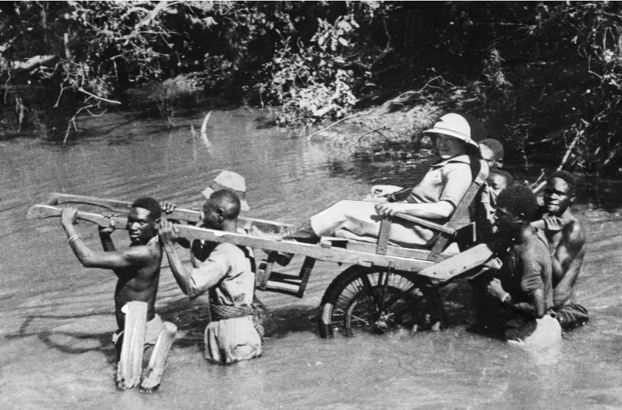
Mission
World Colonization Memorial Museum’s mission is to restore and make visible suppressed, destroyed, or underrepresented histories of colonization worldwide. It will provide a comprehensive compilation of world history, focusing on the legacy of colonization.
A reflection space honoring those who have worked to challenge colonization around the globe
World Colonization Memorial Museum (WCMM) will provide an in-depth examination of colonization, covering topics such as the Age of Discovery and Exploration, the conquest and subjugation of Africa, the Americas, the Middle East, Asia, and the brutal Transatlantic Slave Trade and its impact. The museum will also address the various genocidal wars that occurred during the decolonization process. Through films, images, and first-person narratives, visitors will experience detailed and compelling interactive content.
WCMM will provide an immersive experience, featuring cutting-edge technology, world-class art, and crucial scholarship to explore the dark aspects of world history.
Alongside the world’s first and only international memorial dedicated to the victims of colonization, the museum presents a unique opportunity for visitors to confront challenging aspects of our past.
Colonization in the Americas, Africa, Asia, the Middle East, and Europe will feature five interconnected wings in the Museum, showcasing hundreds of sculptures and original animated short films narrated by award-winning artists worldwide.
A dedicated wing of the museum will examine the economics of colonization, the role of the League of Nations, and later the United Nations Trusteeship Council, in the violent enslavement of Indigenous peoples in Trust Territories. It will address issues such as sexual violence against women and children in the colonies, the commodification of people, and the desperate efforts made by colonized individuals to achieve independence.
An extensive exhibit on the brutal assassinations of prominent pro-independence leaders worldwide will document a detailed timeline, short films, and first-person narrative accounts.
The museum’s extensive content on various wars of independence will be located in a wing that explores the role of media during the era of racial terror resulting from colonization.
The final words of war victims will highlight the suffering caused by colonization, affecting entire communities. Details about the starvation of children will help visitors grasp the extent of terror and violence endured by many families.
Visitors will hear firsthand accounts from the descendants of murdered pro-independence leaders and those who lost family members during some of the most devastating wars for independence. They will also learn about the courageous efforts to challenge colonization led by legendary decolonization activists. This includes figures such as Mohandas Karamchand Gandhi, an Indian lawyer and anti-colonial nationalist known for his nonviolent resistance in the successful campaign for India’s independence from British rule, ,,, and Kwame Nkrumah, the father of modern Pan-Africanism (not exclusively).
WCMM will emphasize courageous decolonization movements that challenged colonization and forced colonial powers to respond. This includes the Wars of Scottish Independence, the American Revolutionary War, the Haitian Revolution, the Latin American Wars of Independence, the European Revolutionary Wars of Independence, the Middle East and Asia Revolutionary Wars, and the numerous wars of independence across Africa.
The portrayal of colonization as a widespread manifestation of racism will be compellingly illustrated through a collection of actual signs, artifacts, memorabilia, and notices from across the globe for visitors to see, read, and experience.
Visitors will learn about significant civil wars worldwide and how their origins stem from the way colonial powers established national boundaries, often forcefully merging different religious and ethnic groups.
A discussion on the disenfranchisement of Black soldiers will highlight the Forgotten Colonial Forces of the World Wars, a crucial element in how equal rights were undermined during the colonization era.
The Berlin Conference of 1884 formalized European claims to African territories and established rules for colonization. This was followed by the League of Nations Mandate, which legalized colonization under international law. The United Nations Security Council has also played a role in perpetuating a legalized caste system, which is one of the most significant legacies of colonization. The WCMM will showcase controversial timelines of colonization and outrageous international agreements that have shocked humanity’s conscience.
WCMM will have a Reflection Space that honors hundreds of people who have worked to challenge colonization.
In a grand space featuring world cultures and powerful imagery, the history of struggle will inspire everyone to reflect on how we can make a difference.
The museum will feature a world-class art gallery displaying major works by celebrated artists from around the globe. We will have a gallery that showcases works created exclusively for WCMM. The entire collection will be curated in relation to the museum’s historical narrative.
Collaborations with Western and non-Western world music, including quasi-traditional, traditional, and intercultural forms, will explore the roles and significance of arts, music, and dance in global decolonization efforts.
As a physical location and outreach program, WCMM will serve as a catalyst for education about the legacy of colonization and racial inequality, fostering truth and reconciliation that will lead to genuine solutions for contemporary issues.
Let's Unveil the Ugly Parts of Our History
Something unjust happened around the world that too few people have discussed. WCM acknowledges that, despite the impacts of colonization, the world can still become a better place. However, if we want to move forward, we must speak the truth, recognize the darker aspects of our history, and commit to reconciliation and healing.
Do you or anyone you know speak English, Spanish, French, Dutch, or Portuguese? Are you aware that these languages, which carry culture and embody the beliefs, values, and identity of European nations, were imposed on conquered populations around the world that were disproportionately of color?
Are you aware that, across Africa, the Americas, Asia, and the Middle East, colonization was not just about economic and linguistic imperialism? It was also a global expression of racism—a brutal and nefarious crime that was witnessed and even celebrated by millions of White people.
Do you realize that the United Nations Trusteeship Council, assigned under the UN Charter to supervise and promote the advancement of Trust Territories toward self-independence, was severely undermined by colonial powers? Under its watch, Trust Territories around the world were drenched in the blood of their revolutionary heroes, who were killed under horrific circumstances—including targeted assassinations, extrajudicial executions, massacres, and genocide.
Are you aware that during colonization people of color were reminded that if they tried to resist enslavement, if they try to prevent the partition of their kingdoms, denied their master’s language, or insisted on gaining independence - in other words, if they did anything that upset or complicates White supremacy, White dominance, and political power they will be killed?
Are you conscious that colonization was not just an uncomfortable footnote in history but reflected the belief in racial differences that reinforced Apartheid, Jim Crow Segregation, and systemic racism that has done real psychic damage not just to Black people but to White people too?
Do you believe that the killing of men, women, and children under the banner of colonization was wrong, unjust, and though most people would rather forget, this dark period of racial terrorism in our past casts a shadow across the world and compromises our commitment to reconciliation and healing?
Regardless of direct impact, if you could, would you do something to commemorate colonization victims and help the world recover from centuries of racial injustice?
If you answer yes to one of the above, you are exactly who we seek. You can become a volunteer or an intern by sending us an email: info@wcm-m.org
You can also connect with WCM through our social media platforms below.
Business:
The international business community is embracing corporate responsibility and can work with us to heal racism and make the world a better place. Partnering with WCM to help tackle racial injustice is good for global citizenship and good business.
Don't hesitate to get in touch: info@wcm-m.org
Civil Society:
WCM recognizes the importance of partnering with civil society/non-profits and invites you to join us in building a better, safer, equitable, and more sustainable world.
Please get in touch: info@wcm-m.org
Donate:
Do you want to contribute to the world's first and only colonization memorial?
World Colonization Memorial (EIN 86-3844927) is a 501(c)(3) organization. Gifts and donations are tax-deductible to the full extent allowable under IRS regulations. You can support us by donating via our Donate link above.
Connect With Us
Please connect with WCM through our social media platforms below.
